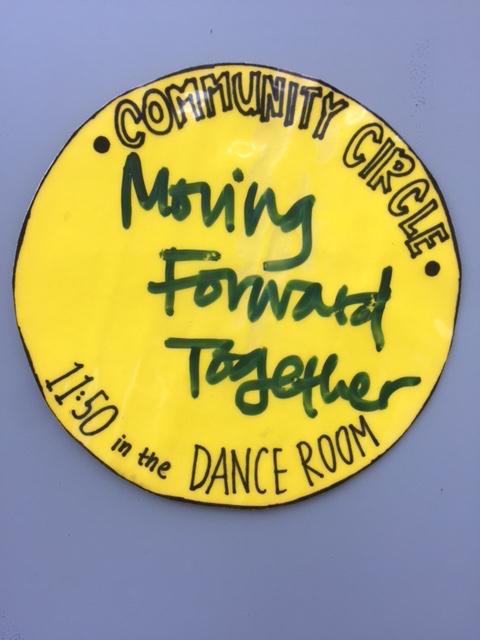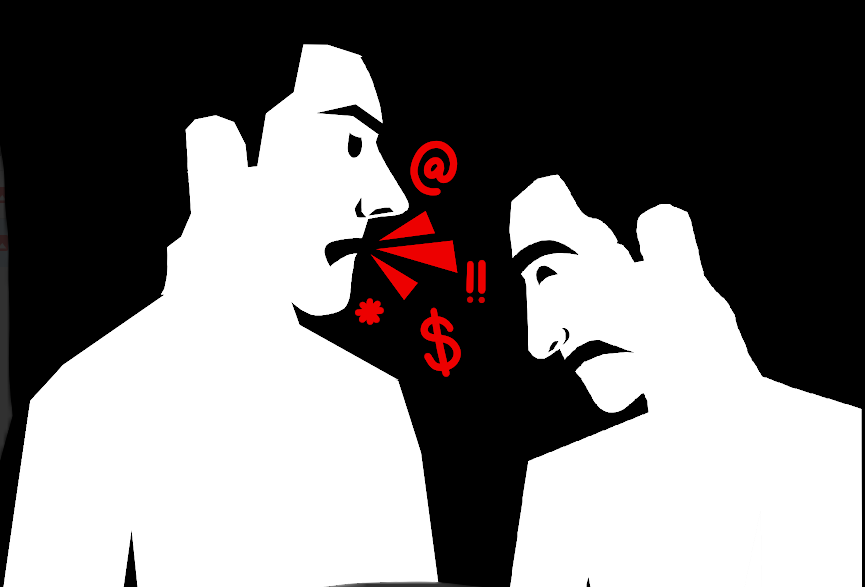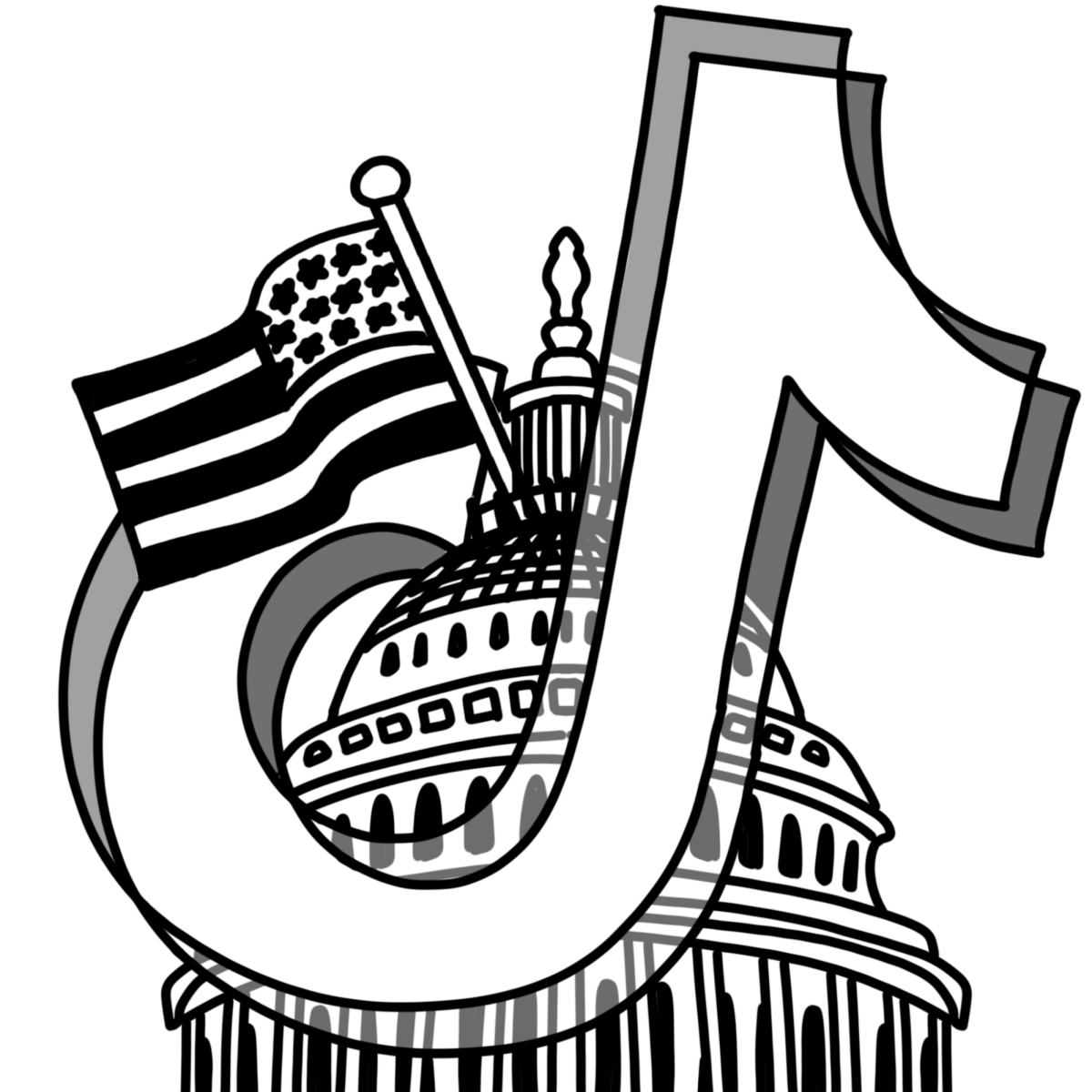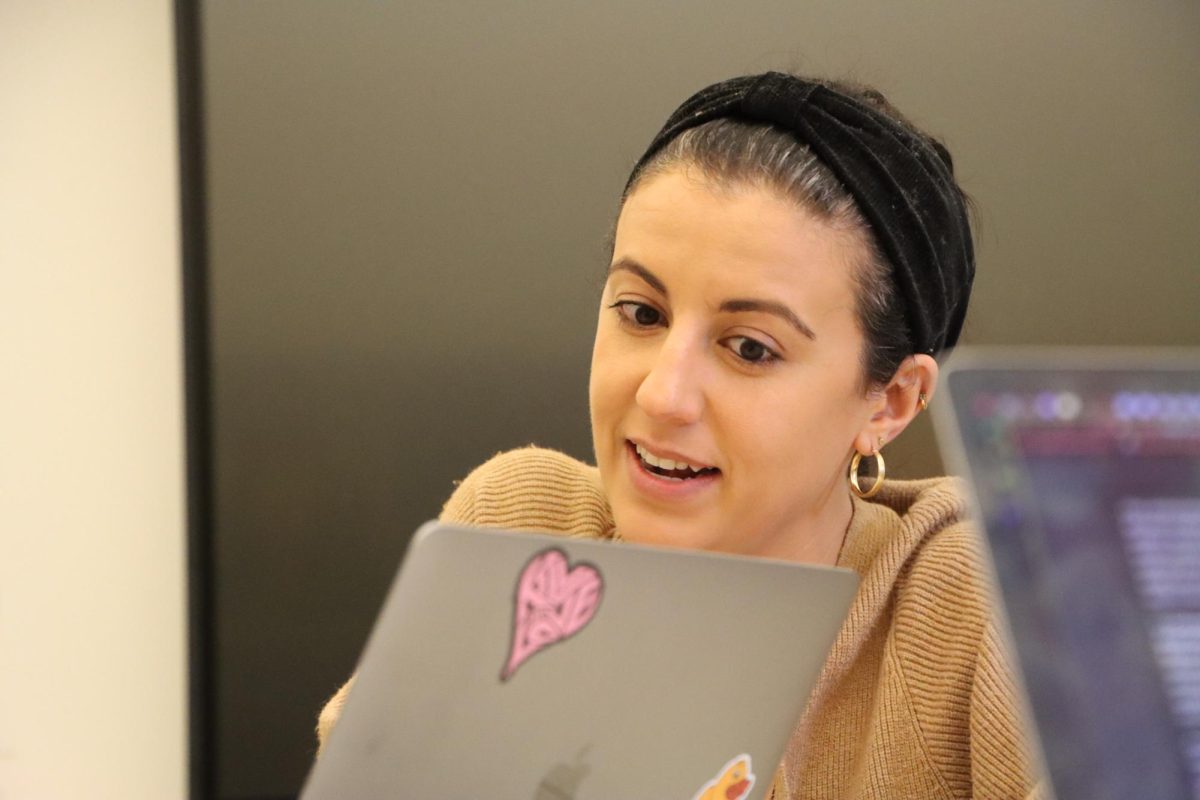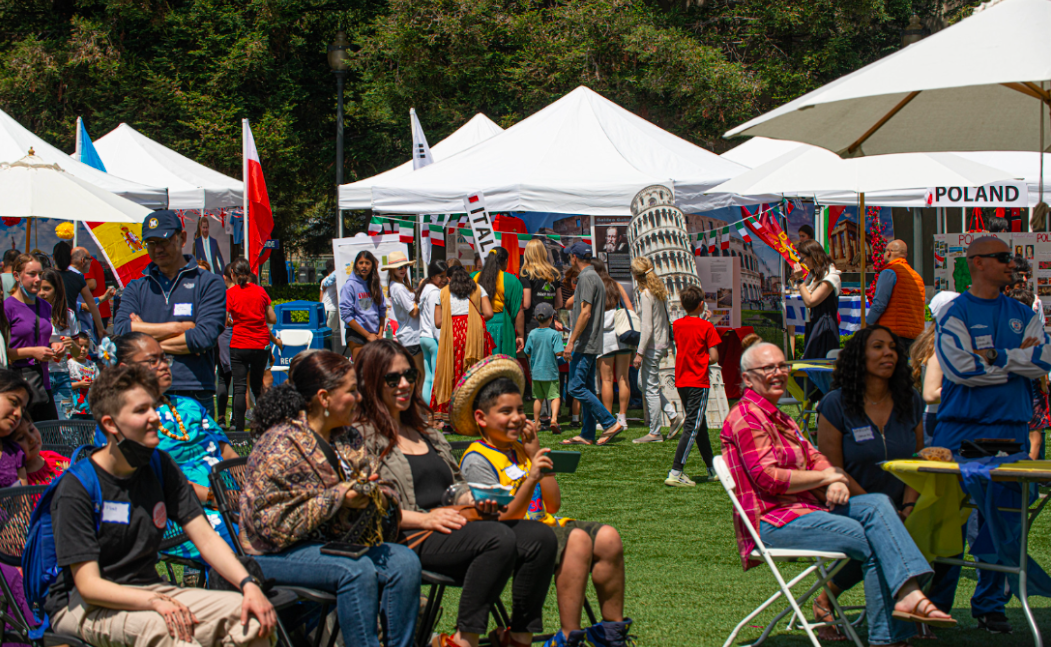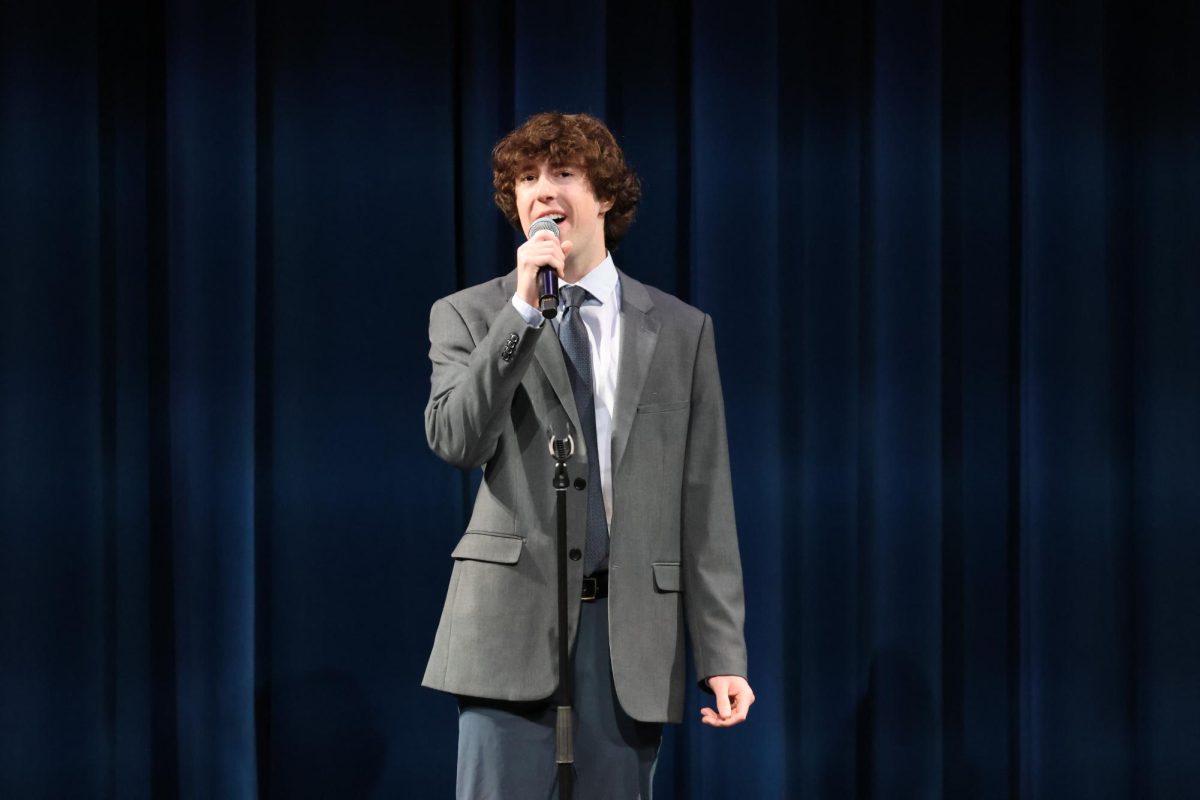The Community Circle discussion was focused on helping unite the community and helping foster productive discussions even amidst opposing political viewpoints. Staff photo: Lauren Yang.
By Baily Deeter
The results of the presidential election took many by surprise, and these unexpected results caused some strong emotions for many members of the Menlo community. As a way of responding to these emotions, by acknowledging them and facilitating helpful discussion about them, the school organized a Community Circle discussion.
The discussion was centered around understanding and finding ways to move forward as a community after the election. The Community Circle Committee emphasized that the discourse was not meant to attack either of the two primary candidates or any third-party candidates, but rather to gain an understanding as to why one would want to vote a certain way.
To that end, the discussion began with three history teachers representing the opinion of those who voted Democrat, Republican, and third-party (although it was emphasized that this might not match with their personal beliefs). Charles Wetherell represented the liberal perspective, Ryan Dean represented the conservative perspective, and Katharine Hanson represented the independent perspective.
Each teacher was given the opportunity to present ideas as to why voters would elect a certain candidate. Wetherell mentioned those who are more interested in concrete, explicitly mentioned policies, especially those that have been in place for the last eight years. “Those who like Obama and want to continue with his policies [are generally those who voted for Clinton],” Wetherell said.
Dean countered with a conservative viewpoint, noting that life in a rural setting can often be hard for Menlo students to empathize with. “[People in struggling rural communities] are losing their factory jobs, have no hospitals and have limited medical access,” Dean said. He also pointed out that a more religious way of life traditionally corresponds to the conservative candidate and that these are the types of people who felt the need for change, which is something that Donald Trump provided.
Hanson represented the third-party perspective, representing voters who were dissatisfied with both candidates. “Third-party voters believe that there have been moral failings on both sides,” Hanson said.
After this, the discussion was shifted to include the other students and faculty in attendance. Many different topics were discussed, including further discussion on the perspectives of third-party and Republican voters, the role of the Electoral College in the result, and, of course, how the community can unify after the election.
Dean elaborated on his position on rural, dissatisfied voters by emphasizing how they have lost jobs in factories and in industries like that of coal mining that have supported their families for generations. Many of these voters have watched their community fall apart before their eyes.
Wetherell added to Dean’s points. “For a lot of urban communities, they’re going from zero to something. For these rural communities, they’re going from something to zero,” Wetherell said.
After this discussion on why people might be inclined to vote for a specific candidate, the discussion shifted to how we can avoid making generalizations about students based off of who they voted or would have voted for. “Just because someone voted for a particular candidate doesn’t mean that their beliefs entirely correspond with that of the candidate they voted for,” senior Teshie Bronk said.
The meeting then was concluded with concrete suggestions on how to gain empathy for the other side of the political spectrum. “Everyone should take a road trip to some of these different communities, and if you can’t do that, there are books describing what life is like in these communities,” Dean said.
Wetherell also mentioned how he tries to curtail his political bias through his social media usage. “The Internet generally reduces arguments because people can easily find others who agree with them,” Wetherell said. To combat this, he forces himself to follow as many reputable conservative politicians or news sources on Twitter as he does liberal sources and encourages his students to do the same. The committee is composing a list of viable sources to distribute to the school so that people can better understand both sides of the spectrum.
As a whole, the community circle appeared to be a success. “I thought the discussion was a huge success,” junior class president Grant Dumanian said. “The panel of teachers did a fantastic job outlining the reason any given person might have voted for one of the candidates, and they paved the way for a very respectful discussion.”
Junior Aidan Israelski, who often moderates Community Circle discussions, agreed with Dumanian. “It was a productive talk that gave students an initiative to understand the other side well,” Israelski said. “The peaceful tone was maintained throughout the talk and while there is work to be done, today gave us as Menlo students a tangible goal to achieve.”
Menlo has more election discussions coming up, including one in Martin Family Hall at lunch on Tuesday, Nov. 29 about what to expect with Trump as president. Stay tuned as more discussions come up and as these important topics continue to be discussed.


